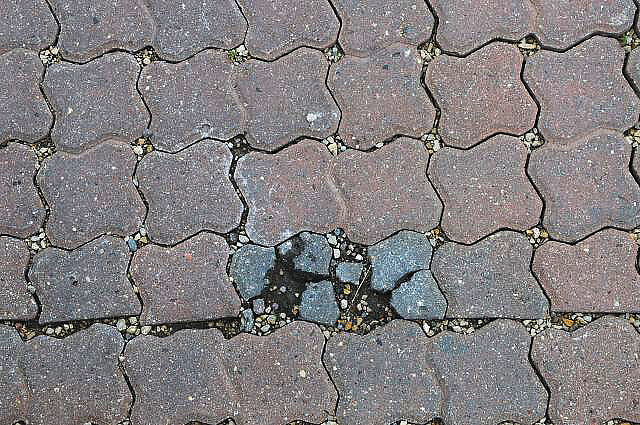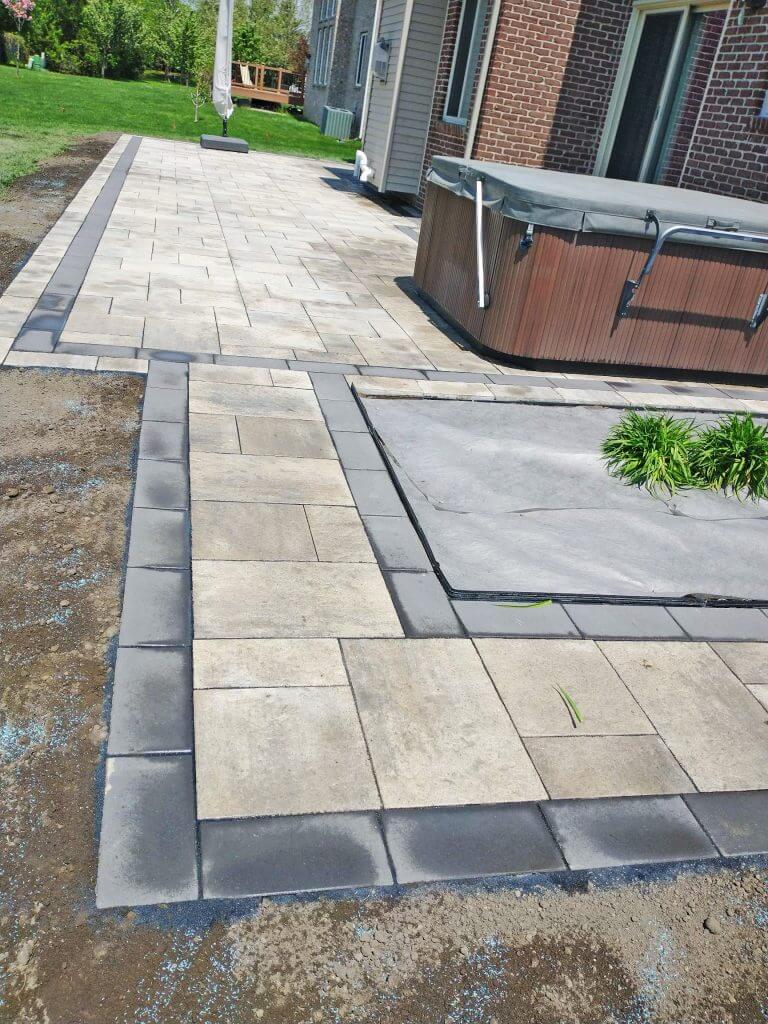Break paver sealing step-by-step. What is it?
Should you seal brick pavers?
There are several things you need to take into consideration before you make a final decision, such as the climate in your area, the amount of traffic your pavers will get, and your personal preferences:
- climatic conditions – if you live in an area with a lot of rain, snow, or humidity, it’s probably a good idea to seal your pavers. This will help to protect them from the elements and prevent them from cracking or chipping.
- amount of traffic – if you have a backyard patio that gets a lot of use, you may want to consider sealing the pavers to prevent them from becoming damaged more quicker.
In the end, it’s up to you whether or not you want to seal your pavers. If you’re not sure, you can always ask for advice from a professional or take a look at some of our before and after photos to see the difference sealing makes.
Sealing brick pavers – pros and cons
There are both pros and cons to sealing brick pavers. It’s important to weigh these carefully before making a decision.
Pros:
- Sealing can help to protect your pavers from the elements and prevent damage. Sealing can also help to keep your pavers looking new for longer by preventing dirt, grime, and other materials from staining them.
- Sealing can make cleaning your pavers easier as it will prevent dirt and grime from sinking into the pores of the pavers.
Cons:
- Sealing can be expensive, depending on the type of sealer you use.
- Sealing can be time-consuming, as you will need to wait for the sealer to dry completely before using the area.
- Sealing can be difficult to do yourself, so you need to hire a professional to do it for you.
Sealing brick pavers takes some effort and money, however, it can make your pavers more durable and stable.
What materials should you use?
Water-based sealers are the most popular type as they’re easy to apply and don’t have a strong odor. However, they don’t last as long as other types of sealers. On the other hand, oil-based or polyurethane sealers are more durable but can be more difficult to apply and expensive.
The takeaway
Should you seal brick pavers? The decision depends on numerous factors like the area you live in or the frequency at which you’ll be using the pavers. Even though sealing can be expensive and requires professional services, it can make your outdoor space more durable and damage resistant in the long run.
Want to learn more about brick paver sealer pros & cons? Check out the blog!






